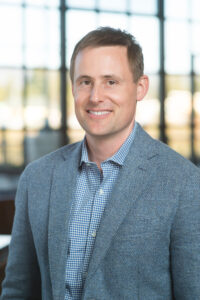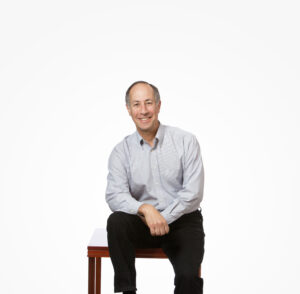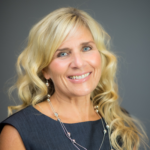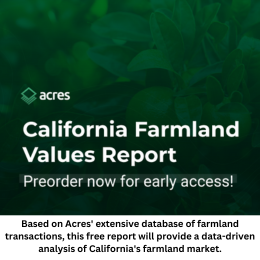December 16, 2021
By Michelle Pelletier Marshall, Global AgInvesting Media
California-based Finistere Ventures (Finistere) is a pioneer in the rapidly growing agtech sector, in which it began making investments in 2005. The company boasts an international network of partners that include Australia, New Zealand, Canada, and Israel, as well as access to their venture partner connections and significant pipelines of agtech centers of excellence and related R&D.
Now recently closed on Finistere Ventures Fund III focused on early stage deals, the company had previously secured funding of $150 million in its Agtech Fund Finistere II in collaboration with Bayer CropScience and AVAC Ltd. And this April, it launched the $40 million NZD Finistere Aotearoa Fund in partnership with New Zealand Growth Capital Partners (NZGCP).
The Finistere portfolio reads like a list of “Who’s Who” in agtech, and includes ApisProtect, CropX, Enko, Growers Edge, Plenty, Taranis, and more. And the company just added Dr. Steve Goldberg, Silicon Valley technology executive and investor, as a partner.
Long-time supporters of Global AgInvesting, GAI News has previously sat down with co-founder and partner Arama Kukutai and CTO Adrian Percy. Today, as the company moves forward with its mission to build innovative companies with the potential to transform modern agriculture, we checked in with Spencer Maughan, co-founder and managing partner, and Steve Goldberg, partner, for a fresh view into the company’s future.
1). Finistere speaks to accelerating the change needed to improve the food supply chain… what are your top three priorities along these lines?
Spencer:
1). Provenance and identity
2). Supply & demand intelligence (stability of supply in the face of climate change; AI to match demand with supply, etc.)
3). Scaling last-mile delivery for local, sustainable food products
The modern food supply chain has come under unprecedented stress through the pandemic. This has coincided with the first presidential election where baby-boomers were not the largest voting block. The millennials have a distinctly different view of what “safe” food is – whereas the baby boomer nation saw heavily processed, uniform, and shelf-stable items made by big brands as high quality, the millennials have ushered in an era where local, small brand, perishable, and clean label foods are sought out. This has added an additional complexity to the recently strained traditional supply chain as it tries to scale the needs of this new consumer. Consequently, areas that we, at Finistere, are especially interested in are technology products that speak to these shocks and trends. For instance, Provenance and Identity preservation that both tells a consumer story as well as verifies the sustainable and nutritional aspects of smaller brands is needed. Indeed, platforms that can intercalate with current systems to allow the entire chain to be traced from producer to consumer would be a powerful addition for brands. The availability of inputs for food production and farming as well as synching up supply and demand is becoming more critical. This is prescient given the increasing volatility of weather that can affect harvests and shipping. Our investment in ClimateAI is aimed directly at this issue. We are actively looking for additional technologies that can better smooth the supply-demand match from on-farm to CPG. Finally, the pandemic has seen an unprecedented shift from brick and mortar food shopping to online. To further facilitate this shift, logistics and last-mile delivery is key. We have invested in a number of digital food companies including Good Eggs, Tovala, and Territory Foods. We will continue to look for opportunities that enable last-mile delivery, from transactions to logistics, especially as sustainable and “new consumer” foods are adopted more broadly.
Steve:
I would add safety, productivity tools, specifically related to labor, and tools related to financial management specifically related to reliability of funding and payments, and tracking and audit of supply.
2). What are the greatest changes expected now that Dr. Goldberg is a part of the Finistere team?
Spencer: I don’t see any significant changes in our approach except an expanded set of capabilities and resources. Steve’s background gives us a much stronger footing in hardware and data.
Steve: Agreed. We’ll certainly be looking at technology-based solutions that include both hardware and software. The real world needs to be monitored, sensed, and tracked using hardware so that software can do the processing and provide advice and/or make decisions. Robotics is obviously an up and coming area of interest along with almost anything AI/ML (artificial intelligence/machine learning) -based or enhanced.
3). Finistere’s team has backed companies currently valued at over $5 billion, and has recently closed on Finistere Ventures Fund III. What’s next for funding goals, and what are the plans for the latest tranche?
Spencer: We continue to run the same playbook. We are focused on early-stage investment – pre A to series A and are actively investing across technology platforms. We are especially interested in platform technology companies that can enter the value chains where we have strong networks in, as well as other markets.
Steve: Yes, we’ll be focused on finding companies that are early enough that we can have a significant impact on growth, management, and success. That said, it’s always a challenge to find companies with early customer traction in large markets that have the ability to scale.
4). Tell us more about Finistere’s involvement in the next Green Revolution in agriculture.
Spencer: We are focusing a lot of attention on inputs to agriculture that are more sustainable and allow farmers to produce more with less. We are also interested in mitigating carbon through agriculture, especially with respect to the soil. Outside of input technologies, we are working a lot on supply chain and data streams that can better optimize supply chains. We think the entire value chain is being re-engineered through technology and we are at the very beginning of this change.
Steve: I would add that here in the United States, we are seeing significant inflation on all things, including consumer goods. Consumers are becoming increasingly cost conscious. It may be short-lived or it may be with us for a long time. It will be very important to continue to look for Green “solutions” that are cost competitive with existing products and services.
5). Finistere and Pitchbook partnered to publish AgriFood Investment Trends in the COVID-19 Era, which highlighted a record-breaking year for agrifood investment in 2020. Have you continued research through 2021? What does this barometer show now, nearly two years into the global pandemic?
Spencer: We have continued research in this area and are making plans for sharing our insights regarding 2021. What is clear to us is that the momentum continues, and the pace and scale of investment continues to grow.
In terms of the global pandemic, a trend we have seen in the food value chain is that there has been a huge push for digital and online transactions, especially for food.
Steve: One example of major consequence going forward, is the work at work versus the work at home transition. This transition, which will likely be with us for a while, has created the need for huge changes in the food production, food delivery, and food preparation segments. We’ll be looking for investments that support this thesis.
ABOUT THE INTERVIEWEES
 Spencer Maughan, co-founder and partner at Finistere Ventures, heads the Silicon Valley office in Palo Alto. Previously, Spencer was an investor at Venrock, an entrepreneur-in-residence at Kleiner Perkins Caulfield and Byers, and a company founder and entrepreneur. He sits on numerous boards, is a catalyst member of University of Wisconsin’s WARF accelerator program, an Advisory Board member of CSIRO, Australia’s peak science organization, as well as an advisor to the ARENA-sponsored Renewable Energy Venture Capital Fund managed by Southern Cross Venture Partners. Spencer earned a BSc and PhD in Genetics from the University of Melbourne, where he was a Melbourne Research Scholar, and later named a Marie Curie fellow at the University of Cambridge (UK) within the Institute of Biotechnology. Spencer also holds an MBA from Stanford University’s Graduate School of Business, where he was the American Australian Association’s Macquarie Bank Fellow.
Spencer Maughan, co-founder and partner at Finistere Ventures, heads the Silicon Valley office in Palo Alto. Previously, Spencer was an investor at Venrock, an entrepreneur-in-residence at Kleiner Perkins Caulfield and Byers, and a company founder and entrepreneur. He sits on numerous boards, is a catalyst member of University of Wisconsin’s WARF accelerator program, an Advisory Board member of CSIRO, Australia’s peak science organization, as well as an advisor to the ARENA-sponsored Renewable Energy Venture Capital Fund managed by Southern Cross Venture Partners. Spencer earned a BSc and PhD in Genetics from the University of Melbourne, where he was a Melbourne Research Scholar, and later named a Marie Curie fellow at the University of Cambridge (UK) within the Institute of Biotechnology. Spencer also holds an MBA from Stanford University’s Graduate School of Business, where he was the American Australian Association’s Macquarie Bank Fellow.
 Steve Goldberg is currently a partner at Finistere Ventures. Previously, he was a partner at Venrock having been CEO of several early-stage companies including DataRunway, Vidient, Arcwave, and CoWave Networks. Prior to that, he was vice president of Research and Development at Nokia Internet Communications and vice president and general manager of the Wireless Communications Division at Cylink Corporation. He has also held senior management and engineering positions at Trimble Navigation and Hewlett Packard. He is currently sitting on the Board of Directors for FutureDial, a mobile phone software company providing reverse logistics support, and SolidPower, an EV lithium-ion, solid-state battery company. He is also a company advisor to Alcatraz.ai, Bruviti, and Accern. He holds a Ph.D. E.E. degree from the University of California at Santa Barbara and M.S.E.E. and B.S.E.E degrees from Washington University in St Louis, Mo. He is a Life Member of the IEEE and a past president of the IEEE Communications Society, Santa Clara Section.
Steve Goldberg is currently a partner at Finistere Ventures. Previously, he was a partner at Venrock having been CEO of several early-stage companies including DataRunway, Vidient, Arcwave, and CoWave Networks. Prior to that, he was vice president of Research and Development at Nokia Internet Communications and vice president and general manager of the Wireless Communications Division at Cylink Corporation. He has also held senior management and engineering positions at Trimble Navigation and Hewlett Packard. He is currently sitting on the Board of Directors for FutureDial, a mobile phone software company providing reverse logistics support, and SolidPower, an EV lithium-ion, solid-state battery company. He is also a company advisor to Alcatraz.ai, Bruviti, and Accern. He holds a Ph.D. E.E. degree from the University of California at Santa Barbara and M.S.E.E. and B.S.E.E degrees from Washington University in St Louis, Mo. He is a Life Member of the IEEE and a past president of the IEEE Communications Society, Santa Clara Section.
 Michelle Pelletier Marshall is contributing editor and author for HighQuest Partners’ GAI News and Oilseed & Grain News, and managing editor for its WIA Today blog. Additionally, she is the company’s Senior PR/Media Manager. She can be reached at marshall@highquestpartners.com.
Michelle Pelletier Marshall is contributing editor and author for HighQuest Partners’ GAI News and Oilseed & Grain News, and managing editor for its WIA Today blog. Additionally, she is the company’s Senior PR/Media Manager. She can be reached at marshall@highquestpartners.com.

Let GAI News inform your engagement in the agriculture sector.
GAI News provides crucial and timely news and insight to help you stay ahead of critical agricultural trends through free delivery of two weekly newsletters, Ag Investing Weekly and AgTech Intel.




